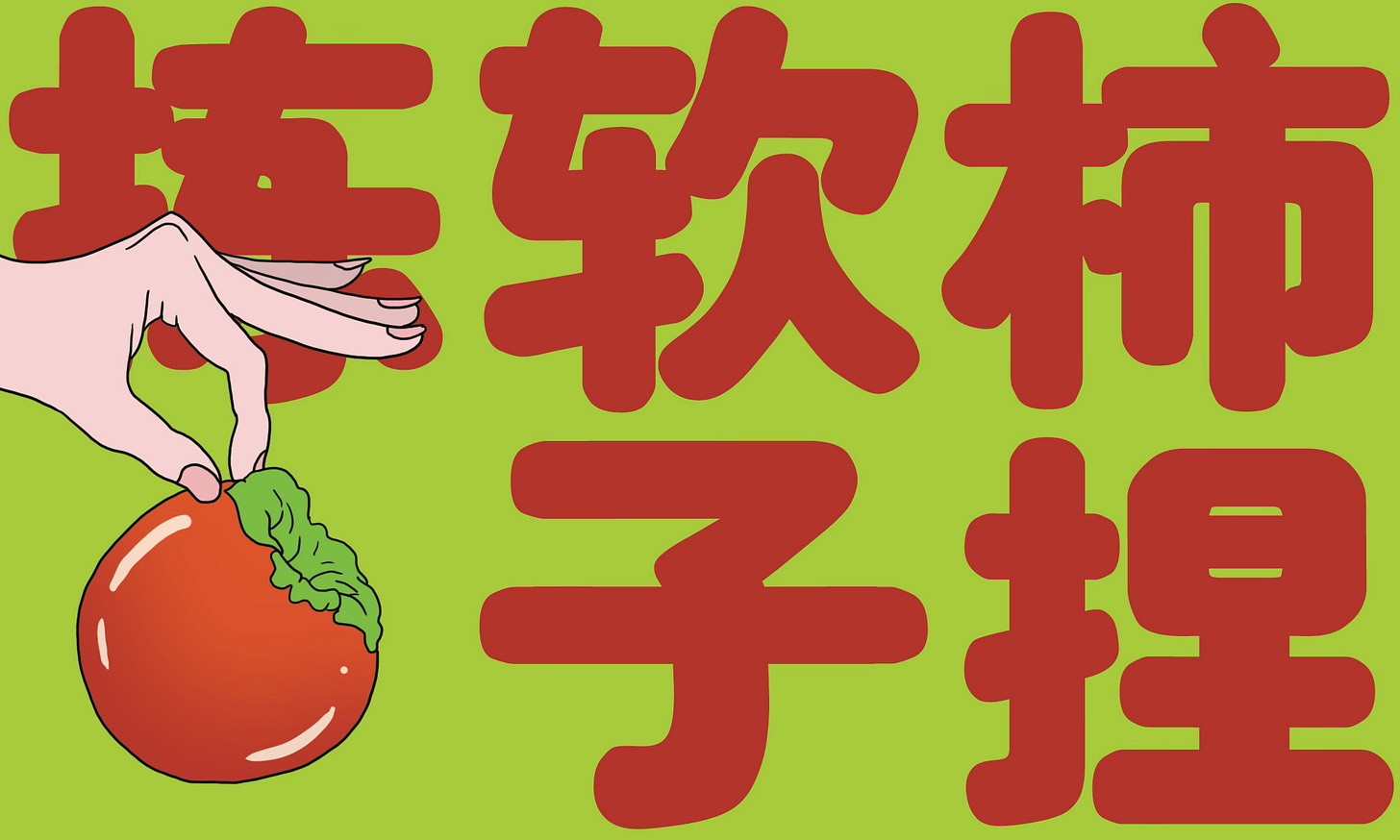"Picking on the weak" — Phrase of the Week
A government policy first proposed in 2013 is approved but unfair according to some

Our phrase of the week is: "picking on the weak" (拣软柿子捏 jiǎn ruǎn shì zi niē)
Context
On September 13, the National People’s Congress Standing Committee (中国全国人大会常务委员会), China's highest legislative body, approved a long-awaited increase in the official retirement age.
The retirement age for men will rise from 60 to 63, while women’s retirement age will increase from 50 to 55 for blue-collar workers, and from 55 to 58 for civil servants.
These reforms will be phased in over the next 15 years.
After the announcement, a brief surge of social media discussions and WeChat public account posts followed. However, critical comments were soon deleted or led to '404 Not Found' errors when accessed.
Even an article from over a decade ago, first published in 2013 when the policy change was proposed, was removed. This piece, titled Delaying Retirement Could Be a Breach of Trust for a Generation (延迟退休可能是对一代人的违约), was written by Cao Lin and appeared in China Youth Daily on April 20, 2013.
In his now-censored article archived by the China Digital Times, Cao Lin pointed out that support for the reforms mainly came from officials and experts who stood to benefit from the changes, while the general public, especially those nearing retirement, largely opposed them.
A major concern, according to Cao, lies in the dual-track pension system (双轨制 shuāng guǐ zhì), which offers much better pensions to public sector workers than to those in the private sector.
The policy proposals back then, as well as the actual reforms announced this week, still do not address these concerns about fairness and equality:
What people are against is not the government raising the retirement age; rather, they are more frustrated by its disregard for public opinion on the dual-track pension reform.
Since the interest of officials and experts cannot be touched, the government is picking on the weak.
人们其实不是反对延迟退休,而更多是反感政府在双轨制改革上对民意的漠视,动不了官员和专家,就拣软柿子捏。
Rénmen qíshí búshì fǎnduì yánchí tuìxiū, ér gèngduō shì fǎngǎn zhèngfǔ zài shuāngguǐ zhì gǎigé shàng duì mínyì de mòshì, dòng bùliǎo guānyuán hé zhuānjiā, jiù jiǎn ruǎn shìzi niē.
And with that we have our Sinica Phrase of the Week!
What it means
“Picking on the weak” is a common colloquial phrase, which directly translates as something much more colorful: “picking” (拣 jiǎn) “soft persimmons” (软柿子 ruǎn shìzi), and “squeezing” (捏 niē).
“Pinching soft persimmons" is a variation of a phrase we explored in one of the first Phrases of the Week in January, 2022.
It originates from a longer phrase:
“When an old lady eats persimmons, she chooses the soft ones to pinch”
老太太吃柿子,专挑软的捏
Lǎo tàitài chī shìzi, zhuān tiāo ruǎn de niē.
This is known as a xiehouyu 歇后语, a Chinese expression consisting of two parts.
The first part is a phrase or sentence that sets up a scenario or a metaphor, and the second part provides the explanation or conclusion, which completes the meaning.
In English, this can be roughly translated as a "pun" or "play on words," but the Chinese equivalent often involves a more elaborate setup and punchline.
Often, only one part of the xiēhòuyǔ is spoken, with the rest left implied and understood.
In the now-censored article from 2013, the "soft persimmons" symbolize the general public—those who are not civil servants. They are being squeezed by the increase in retirement age, forced to work longer, yet will still receive a significantly lower pension when they finally retire.
This is why we translate "pinching soft persimmons" as "picking on the weak."
Andrew Methven is the author of RealTime Mandarin, a resource to help you learn contemporary Chinese in context, and stay on top of the latest language trends in China.
Read more about how this story is being discussed in the Chinese media in this week’s RealTime Mandarin.
Bonus: Read our original Phrase of the Week when we translated the phrase as "pushover persimmon".


